Bird Diet Types: Foods That Attract Nuisance and Beneficial Birds
Nov 30, 2021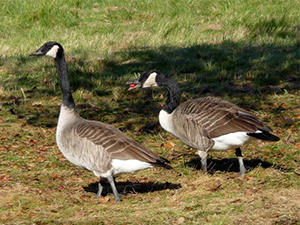
Bird feeding is a billion-dollar industry, encompassing both the business of attracting birds, and the business of managing unwanted birds who show up wherever there’s a meal.
Birds eat a lot: both in volume and variety. So what exactly do birds eat, and how does that impact the birds you see, and potentially have to deal with, on your property?
Birds have adapted to eating almost every type of food out there: fruit, nuts, seeds, grasses, leaves, nectar, meat, fish, snails, insects, trash, and even other birds! Let’s look at these foods, what they attract, and the benefits or nuisances they contribute to.
Birds Will Eat Almost Everything
- Fruit. Fruit evolved to be eaten. The sugary and vitamin filled flesh attracts all kinds of animals who transport and spread the seeds. Having fruits on your property can attract all sorts of wonderful birds. Robins, waxwings, thrushes, and more all absolutely love berries. However, fruit can also attract unwanted birds. Canada geese love fruits in the apple family: pears, crabapples, apples, and more help them bulk up for winter and migration. Having decorative apple and crabapple trees on your property can attract huge flocks of geese in the fall.
- Nuts and seeds. Nuts and seeds are excellent sources of protein for woodpeckers, sparrows, grosbeaks, doves, and finches and make up the bulk of food sold through the bird feeding industry. Canada geese also love nuts, especially acorns, and will flock to areas with oak trees to feast, leaving a big mess behind. Turkeys will find birdfeeders and then spend the rest of their day pecking at windows and shiny cars.
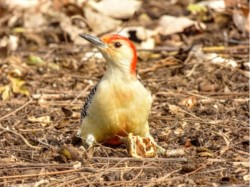
A red-bellied woodpecker with a walnut
- Grasses and leaves. Leafy greens, including grasses, spinach, lettuce, etc. are prime food for grazing species like geese, making lawns and gardens a perfect buffet. Swans and dabbling ducks will also eat greens, preferring aquatic plants to plants on land.
- Insects. The staple for songbirds feeding their young, small birds of prey, swallows, and more, insects are the biggest staple food for the majority of bird species. Want to attract these beautiful birds to your property? Build a pollinator garden that will attract many types of insects and avoid using insecticides that will poison their food. Swallows love human-made caves like loading docks and garages to nest in, which can sometimes cause a problem.
- Meat. Hawks, eagles, and owls are birds of prey. Small mammals are the usual targets and raptors provide excellent rodent control. Birds of prey will also eat reptiles. Vultures like to eat carrion, and road kill draws them into urban areas where they can cause problems at the buildings where they roost.
- Fish. Herons, egrets, cormorants, diving ducks, and bald eagles are primarily fish eaters. Having a pond or lake on the property can attract all sorts of amazing birds looking for fish to eat. However, it’s not so great when that pond is filled with ornamental koi or growing sportfish.
- Trash. Birds like to eat a lot of the same things we do, and what we don’t eat, we throw away, attracting hungry and opportunistic birds like gulls, pigeons, and turkey vultures. Even bald eagles can be seen cruising around landfills looking for an easy meal. Keeping trash secured can help keep nuisance bird numbers down.
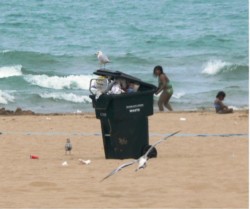
Gulls with trash
- Bread. Don’t feed birds bread. While they will eat it, it’s filled with empty calories that often leads to malnutrition and deformities like “angel wing.”
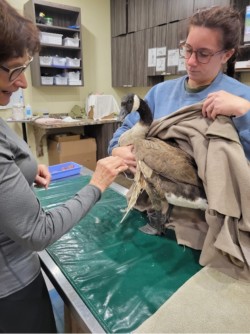
This Canada goose had to go to rehab, suffering from “angel wing,” low weight, and malnutrition – the result of its bread-based diet at a local park.
Get Bird Conflict Help From The Experts Today
Experiencing nuisance birds attracted to food sources on your property? Would you like to attract a variety of beneficial birds to your property instead? We can help. With experts in nuisance bird management and bird ecology and biodiversity, the MBM team can provide consultation, assessment and assistance for managing bird conflicts and creating the right bird habitat. Give us a call and let us know how we can help.
Contact us to learn more about nuisance bird conflict management
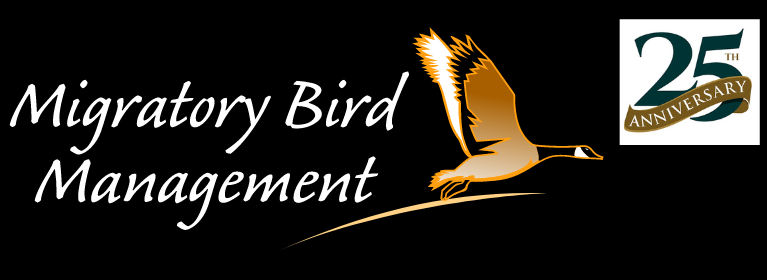



 0
0
